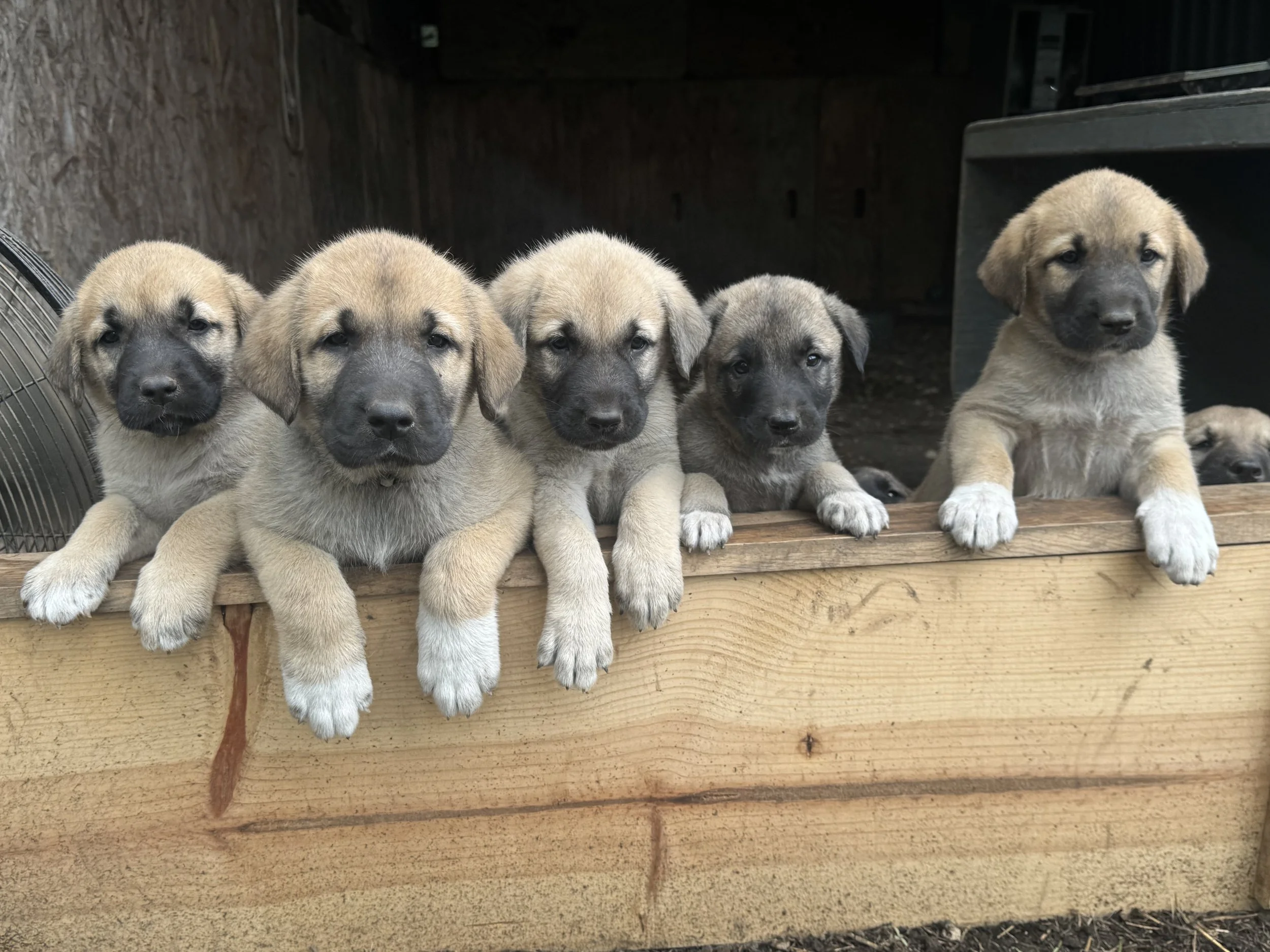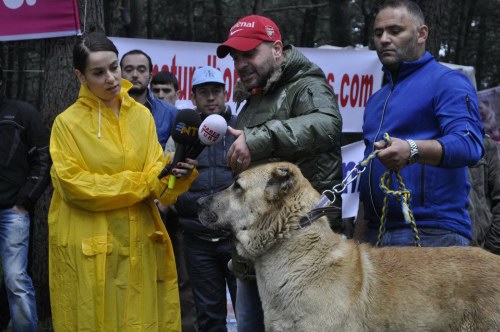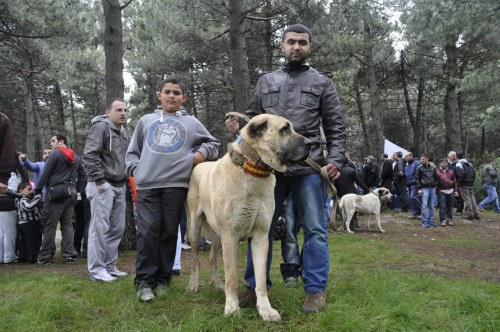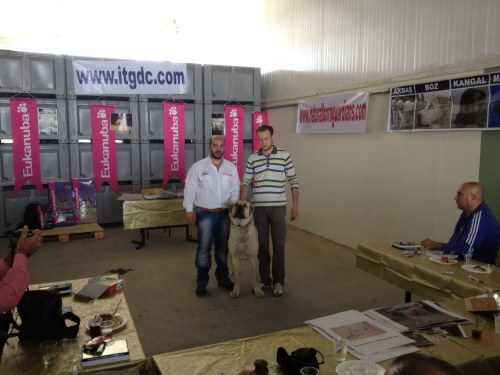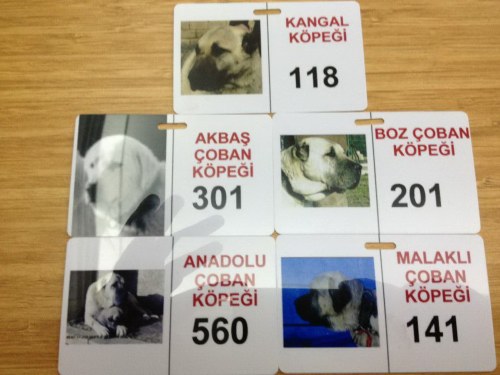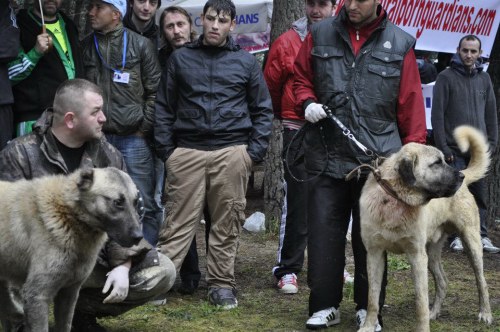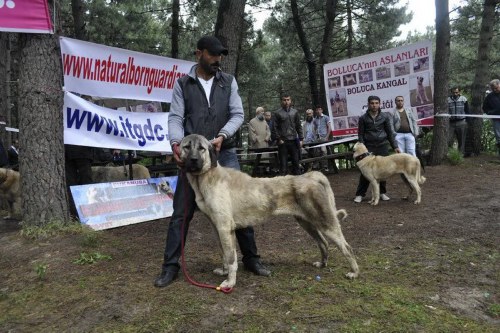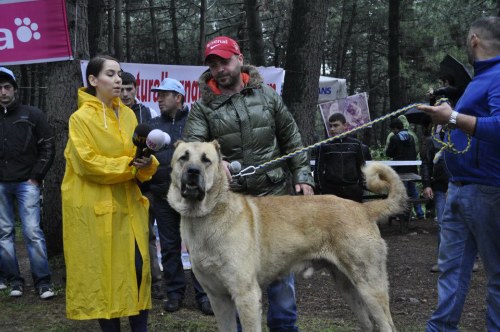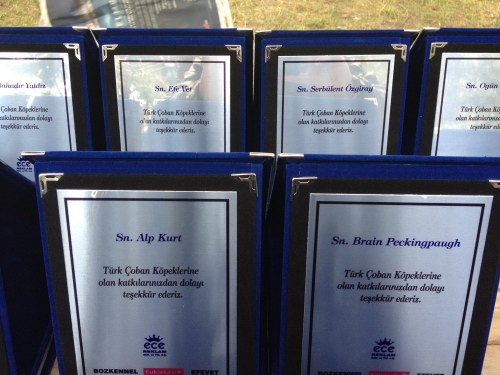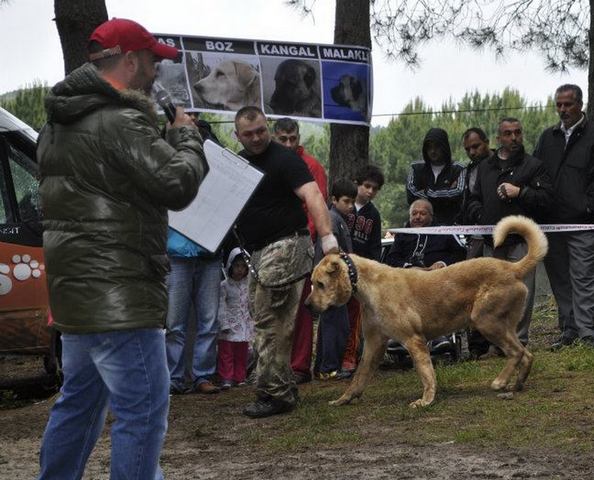Breed History
The Turkish Boz Shepherd is a dog breed several centuries old that has been bred for function, health, temperament, and versatility. Visit this page to learn about these magnificent, giant working dogs to see if the Boz may be the right fit for you!
Turkish Boz Shepherd Breed History
The Turkish Boz Shepherd is a breed that developed from the Yörük variant of the çoban köpeği (Turkish Shepherd) Landrace. It is closely related to, but separate from, the Akbash, Kars, Anadolu, and Kangal.
What is a Landrace and Does it Differ from a Breed?
A landrace is a term that describes the evolution of the dogs as being curtailed more by natural forces, whereby the weak and less intelligent are naturally culled, with minimal influence on the process by man. This differs greatly from a breed, which is intentionally bred and created by man with specific goals, such as color, size, or temperament, in mind. A landrace evolves with man, whereas a breed is created by man.
A diagram explaining the çoban köpeği (Turkish Shepherd ) landrace and its variants. The information has been provided by numerous validated Turkish resources and pays respect to the breeds turkish roots and its originating peoples.
The Turkish Boz Shepherd and the çoban köpeği (Turkish Shepherd) Landrace
Turkish livestock dogs are one of the oldest types of dogs found in the world, their history dating back thousands of years. The Turkish Boz Shepherd is a regional variant of the Yörük, which is a landrace variant of the larger çoban köpeği (Turkish Shepherd) landrace of dogs that can be found throughout Turkey. The Anadolu, Akbash, Kars, and Kangal are all recognized variants of the Turkish Shepherd landrace working dogs that have been identified, and some have further transitioned into breeds, being bred specifically by man as working livestock guardian dogs for their regionally specific needs. Other variants of these working dogs remain in Turkey that has not been recognized outside their regional areas.
Breeding dogs as a"breed" is not necessarily a bad thing, and in actuality, is ultimately unavoidable in our modern world, but landrace-based breeds are consistently found to have fewer health issues and typically much stronger character due to the harshness of mother nature than the more common non-landrace-breeds. Health issues found in the giant breeds are not nearly as prolific in the Turkish Shepherd landrace variants.
The modern dog world is now more aware of the negative health effects that can be created or worsened over time in breeding programs. With the help of scientific progress in genetics during the past 50 years, breeders are able to minimize these issues. As required by the TDF, all Turkish Boz Shepherd Registered Breeding Stock is DNA tested to help maintain and improve the vitality of this breed. Other professional organizations are beginning to require this as well, and we hope that more organizations adopt this policy in the near future.
Topographic map of Turkey identifying areas and regions that the Boz Shepherd developed as a landrace variant.
The Yörük Landrace Variant
The Yörük dogs were historically infused with Turkish Tazi genetics, which has increased the speed, agility, and endurance of the Yoruk dogs. The Turkish Tazi is a thin, agile dog with a structure and function similar to that of a Greyhound. Its square profile has influenced the noticeably more square profile of the Yörük and Boz Shepherd dogs. This was necessitated as a direct result of the uneven terrain and numerous predators in the Toros Mountains inhabited by the Yörük Turkmen. The Toros, also spelled Taurus, Mountain range is one of the last strongholds of the Anatolian Wolves, Leopards, Lynx, and Bear. Additionally, hyenas, lions, and tigers roamed amid the nomadic Turkmen and his flocks until the late 19th century and mid-20th century, when they were hunted to extinction. The shepherd-men needed a livestock guardian dog with the size, strength, and power to engage large predators such as wolves effectively, yet also tremendous agility, speed, and endurance to cover great distances quickly and efficiently. The mountainous terrain compromised visibility distances, so the Yörük Turkmen needed their dogs to monitor the flock by circulating its boundaries constantly. If a threat became imminent, the dogs had both the speed to reach the threat as well as the strength and power to engage it before any of its flock was compromised.
The Turkish Boz Shepherd as a Yörük Regional Variant
The Turkish Boz Shepherd and Akbash are the two commonly recognized regional variants of the Yörük çoban köpeğ. Both share the most temperament traits: the strong need to bond closely to their flock and family, strong instinctual guardian abilities, loyalty, and submissiveness to their family. The Akbash, however, physically displays more of his Tazi genetics, being smaller in size and finer-boned than their Boz Shepherd counterparts. The Akbash breed standard is a solid white dog without a mask, which also separates them from the Boz Shepherd, whose breed standard includes a variety of coat colors, but is most commonly found to be fawn-colored with a black mask.
The Turkish Boz Shepherd
As with most regional variants, the Boz Shepherd was known by various names: Konya, Tuzkoy, Urfa, Denizli (cities from which they came), as Guregh, Bozul, and Boz (by the nomadic shepherds), or mistakenly as Kangal or Malak by others. The ancient nomadic people by name Bozoklar (Brown Arrows), from the Boz Mountains area of the larger Taurus mountain region, herded with these shepherd dogs and were referred to as the BOZ by the Ottomans. The name "Boz" translates to mean "Big Strong Fighting Man" and is the name most commonly used by the majority of breeders in Turkey when referencing this regional variant livestock guardian dog.
The Bozoklar, shown here on the top left, were one of the original Yoruk nomadic peoples and referred to as Boz.
Along with other regional variants, the Turkish Boz Shepherd was selected for ingrained and effective guardian temperament, power, agility, endurance, and strength for the past 8,000 years; the dogs working as protectors of the nomads' flocks consistently during this evolution. This continual selective pressure toward guardianship and function reflects in the dogs' instinctual, innate guardianship abilities, typically sound health, and long lifespans for a giant breed.
The Effects of Modernization on the Turkish Boz Shepherd in the Past Century
Many regional areas in Turkey that were once plentiful with the Boz Shepherd dogs have undergone industrialization and a societal shift during this past century. The number of traditional Yörük Turkmen and shepherd-men in these regions has dropped significantly in the past several decades, and the number of the traditional Boz Shepherd dogs that worked alongside the shepherd-men for centuries declined as well. Even in their native Turkey, the Boz Shepherd has become what may be considered an endangered breed, becoming more and more difficult to locate these truly magnificent dogs.
In an attempt to re-establish the Turkish Boz Shepherd, Akin Tulubas has traveled throughout his native Turkey to Urfa, Tuzkoy, Denizli, Konya, Nevsehir, and other regional areas of the Taurus Mountains, where the Boz Shepherd were once plentiful. As a preservationist, he travels to remote areas and regions searching for dogs that meet the type, temperament, and function to buy, trade, or reincorporate these historic dogs into their native lands. His Boz Shepherd breeding program stays true to the historical regional variant and does not include any blood outside the çoban köpeği landrace. In areas that no longer have the Boz Shepherds that once worked alongside their flocks and shepherd-men, Akin Tulubas provides the Boz to be tested as livestock guardians in their native lands before selecting his breeding stock. In this way, the shepherd-men have been reunited with their families, dogs, and heritage, and more than 200 dogs currently have been placed out in their native regions from which he can select only the best offspring from to continue the breed. He is able to preserve the Turkish Boz Shepherd as it evolved as a historical landrace variant, being tested in function, health, temperament, and guardianship with its people and its flocks, and to re-establish the dogs to peoples in regions that had lost their dogs and consequently a portion of their heritage and culture.
Akin Tulubas is passionate about his Boz Shepherds and his vision to preserve and promote the çoban köpeği dogs. Along with the Boz Shepherd, he also works to preserve the Turkish Tazi and Turkish Kangal, having organized and developed the Turkish çoban köpeği Club in Turkey. He organizes and judges several dog breeds in their annual dog shows, where Turks travel great distances and gather to show their best Kangals, Akbas, Boz, and Malakli dogs. The shows are held in an effort to promote responsible breeding and preservation practices of these rare and majestic dogs.
For further questions, please get in touch with Jesika VanFossen at 785-640-9199
